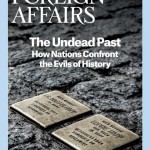In 2015, before resigning his position as economy minister in President François Hollande’s government, Emmanuel Macron explained his idea of French democracy to the newspaper Le 1. “Democracy,” he said, “always implies some kind of incompleteness. . . . In French politics, this absence is the figure of the king, whose death I fundamentally believe the French people did not want.”
What he meant was that the French people instinctively demand a strong state with centralized leadership, that France does best when its executive actually governs rather than merely serves as a vehicle for ideological and personal rivalries. That sentiment has run through French politics for over two centuries, since the French Revolution, through two empires, the Vichy regime, and five parliamentary republics. In modern times, it has become especially prominent. In 1958, the Fourth Republic’s last president, René Coty, persuaded Charles de Gaulle to return to power to deal with a military crisis shaking the French government of Algeria, then still part of France. The Algerian crisis was so destabilizing that it threatened to bring violence to mainland France. The Fourth Republic, its Parliament torn between ideologically incompatible parties and with only a weak presidency, was on the verge of collapse. Once in power, de Gaulle used the crisis as an opportunity to write a new constitution
that gave the president enough power to dominate the fractured party system. He then shaped that presidency into a kind of elected kingship, turning France into a “republican monarchy,” as French commentators have called it ever since.
RONALD TIERSKY is Joseph B. Eastman ’04 Professor of Political Science, Emeritus, at
Amherst College.
This article appeared in the Foreign Affairs 2018 January/February edition. It is republished here with permission.
This article was originally published by Foreign Affairs. You can read the rest of the article here.
You can read exclusive content from Gateway House: Indian Council on Global Relations, here.
Copyright © 2018 by the Council on Foreign Relations, Inc.


